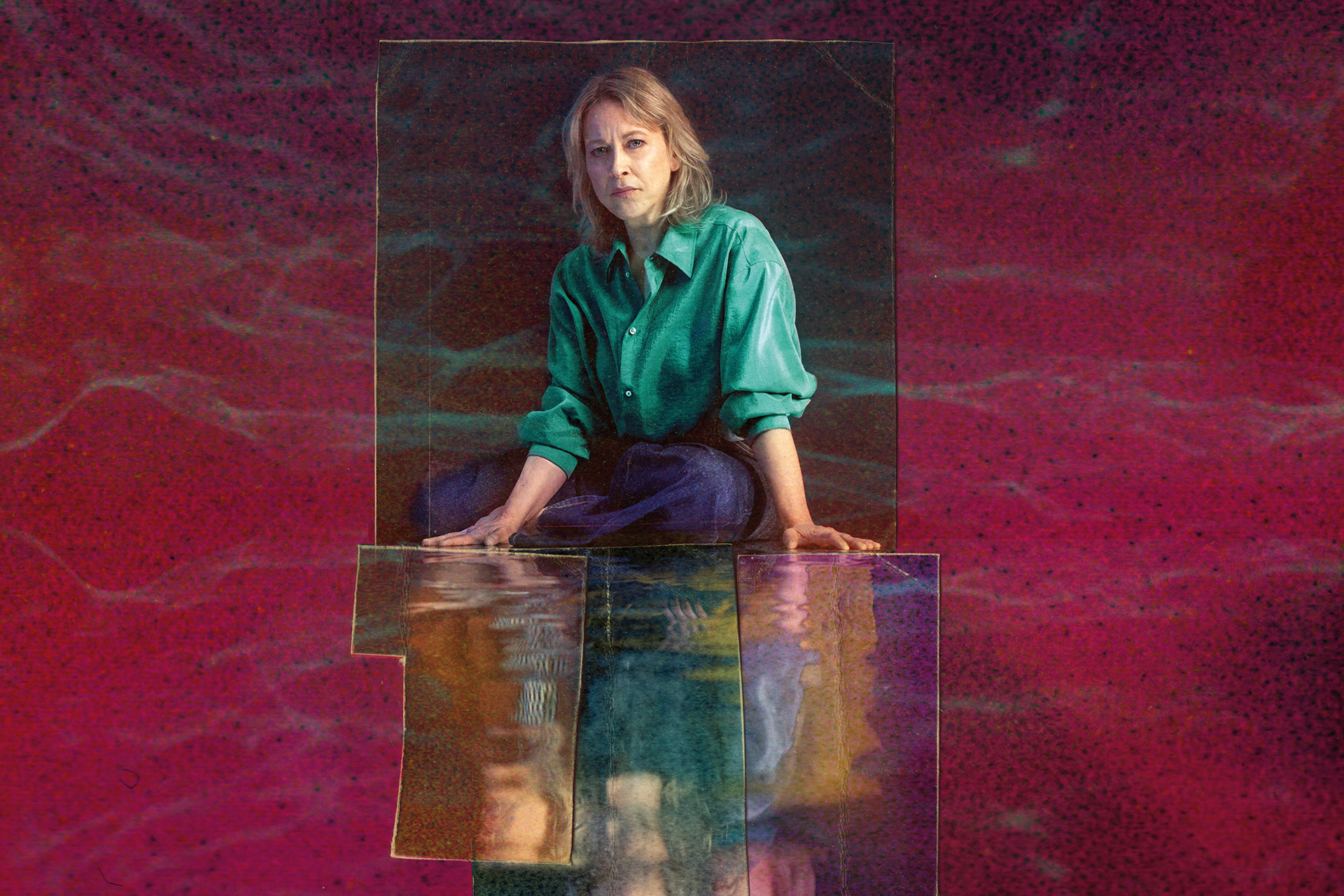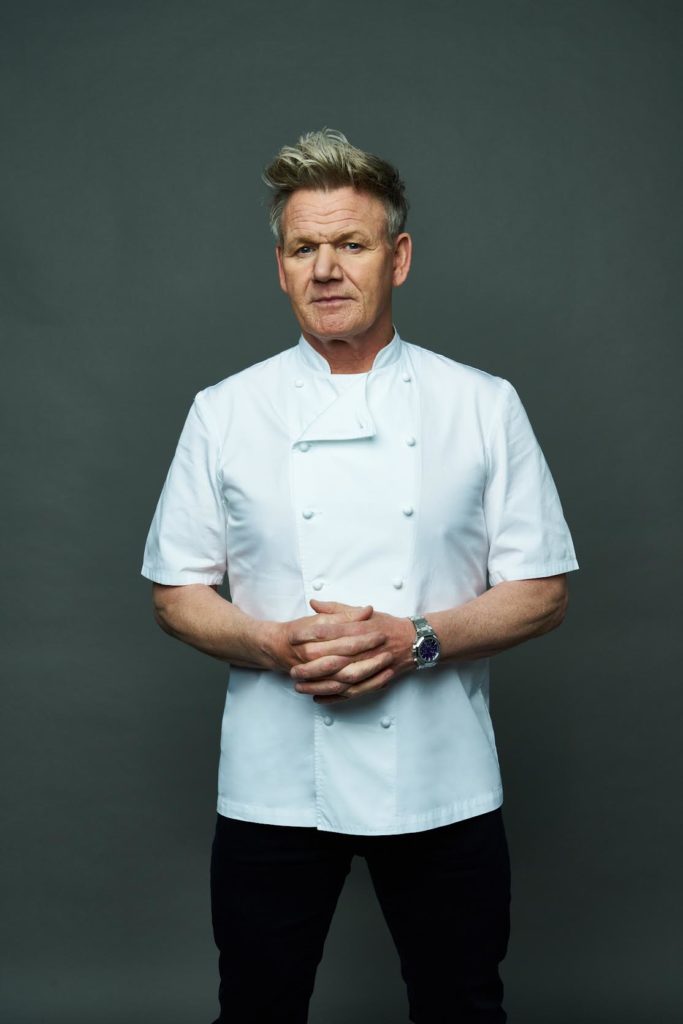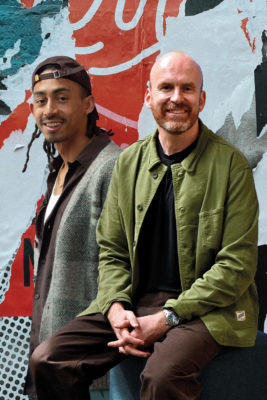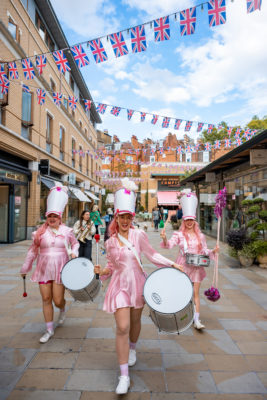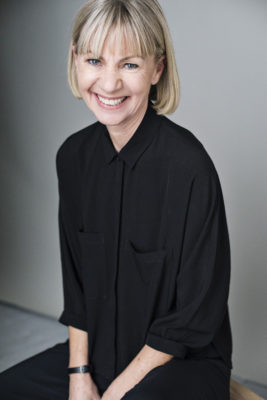The Royal Court’s David Byrne: ‘If We Keep Going To Shows Theatre Will Survive’
By
6 months ago
We meet one of the key figures in British theatre
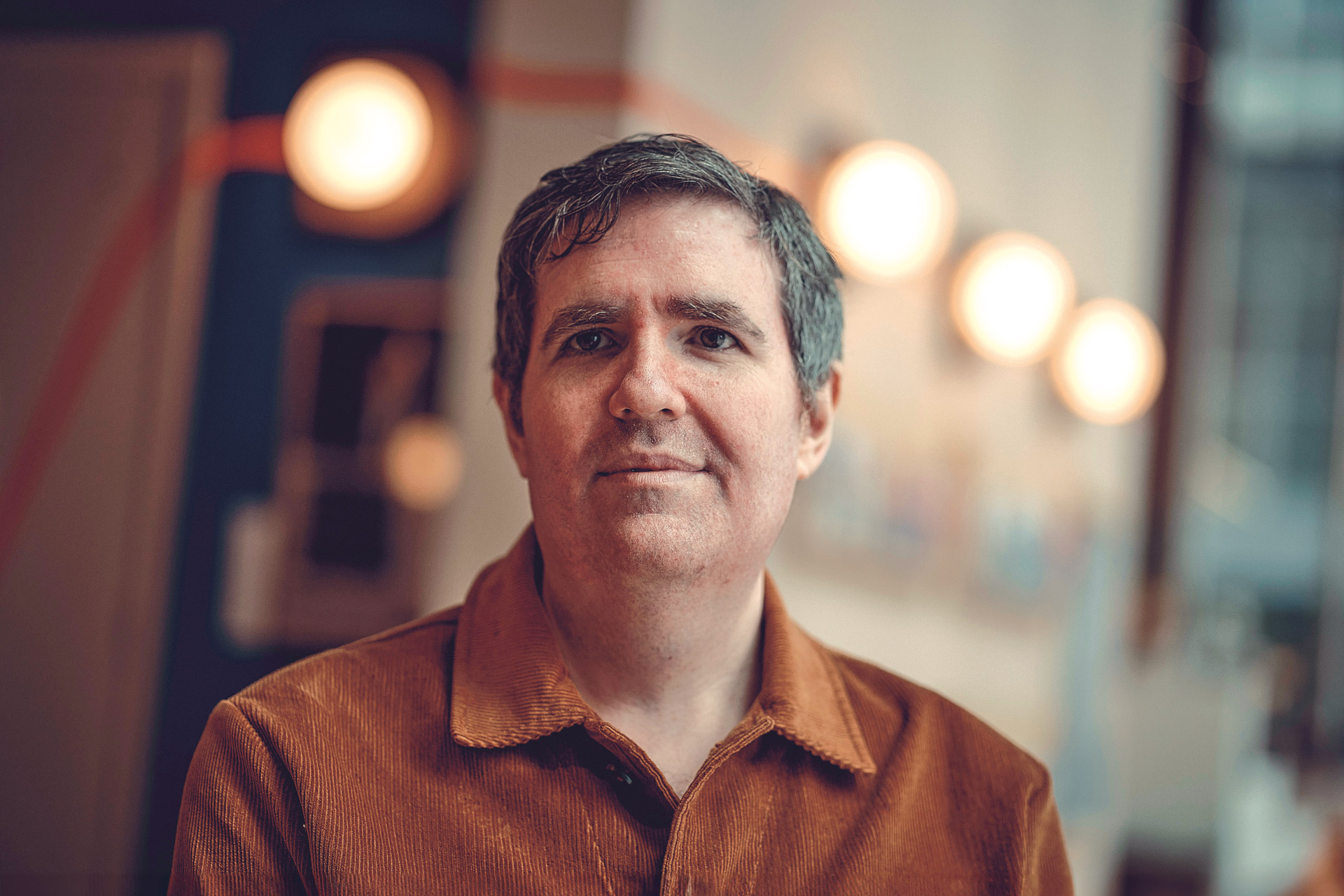
Artistic director of the Royal Court David Byrne talks to Lucinda Baring about the future of theatre and why Chelsea is still culture’s frontline.
MORE: Your Day By Day Guide To The Chelsea Arts Festival
David Byrne On Chelsea Arts Festival & The Royal Court Theatre
David Byrne did not grow up going to the theatre. Raised in Stevenage, Hertfordshire, the son of a father in the armed forces and a factory worker, his was not an artistic family. Then when he was 17, he went on a school trip to see a play – a touring production by physical theatre company Frantic Assembly – because he fancied one of his classmates and wanted to sit next to them on the coach. ‘I’d never seen anything like it. I just felt the walls in my brain completely fall down.’
With no industry connections, the career change of tack wasn’t easy. After studying drama at the University of Hull, Byrne was often signing on. His first break came aged 22, when he got a job running the Rosehill Theatre in Whitehaven in Cumbria. He lasted a year (no heating; manual ticketing; leaking pipes) and credits the experience – the hardest job he’s ever had – with teaching him everything about running a theatre.
Back in London, within five years Byrne had founded the New Diorama Theatre (NTD), an 80-seat studio theatre on the fringes of Regent’s Park, where success came thick and fast. In the decade that he was artistic and executive director, Byrne was responsible for creating one of the country’s most exciting theatres for ensemble work and new writing, NDT winning The Stage Award for Fringe Theatre of the Year in 2022. Smash hits included For Black Boys Who Have Considered Suicide When The Hue Gets Too Heavy, which transferred first to the Royal Court (2022) and then the West End (2023) along with a media storm around ‘black out’ nights, and Operation Mincemeat, which transferred to the West End in 2023. It was no surprise to the industry that the Royal Court came knocking, and Byrne was appointed artistic director – succeeding Vicky Featherstone – in July 2023, taking up his post in early 2024.
Chelsea Arts Festival
Byrne and I are sitting in his office at the Royal Court, the honking horns of Sloane Square drifting through the open windows. One of the first meetings he had when he started was the mooting of the Chelsea Arts Festival. ‘It feels like we should have had an arts festival in Chelsea for decades. So many interesting cultural, artistic and theatrical movements have sprung from the King’s Road and I love the notion of a celebration that brings together arts organisations, residents and all those people who flock to Chelsea to find inspiration and see where the future of creativity is going.’ Now the King’s Road is so polished, does Byrne still believe Chelsea – and the Royal Court – are the provocative boundary pushers they once were? ‘Chelsea moves with the times and the King’s Road is both a reflection of where wider culture is and a weather vein as to where things might be going next. The Court is, and always has been, a huge part of that. This is where really lively conversations are happening.’
The Royal Court
If success is measured by sell-out shows, big name actors/directors/playwrights, and high-profile transfers to other theatres, Byrne is off to a soaring start. The Court has been playing at over 90 percent capacity in both spaces in his first year (that’s 90,000 audience members); 4.48 Psychosis by Sarah Kane (staged at the Court 25 years ago, and shown again in June with the entire original cast, creative team and video footage) transferred to the RSC in July; ECHO, by Iranian playwright Nassim Soleimanpour, who guides a different unrehearsed performer every night by video link from Berlin, has seen queues at the stage door for Daniel Kaluuya, James Corden, Dominic West and Juliet Stevenson (this year) and Toby Jones, Fiona Shaw, Sheila Atim and Jeremy O Harris (last year). Giant – by first-time playwright Mark Rosenblatt, directed by Sir Nicholas Hytner and with US actor John Lithgow as Roald Dahl leading an exceptional cast – was the theatre hit of the year, transferring to the West End and winning three Oliviers.
‘David has immediately established himself as an inspirational artistic director with his shrewd and thrilling programming,’ Hytner says. ‘I couldn’t have had a better time working with him.’ Byrne modestly accepts the praise. ‘It feels like that energy and centre of artistic gravity is really with us,’ he says, while conceding he feels he’s aged a decade in this first year. ‘If you want to provide the most exciting theatre you can, you have to really fight for it and work out how you’re going to really light a fire into people.’
Take Giant, which is set in summer 1983 just after Dahl had written a contentious book review in the Literary Review railing against Israel’s recent invasion of Beirut. ‘The play sounded like a conversation we needed to have as a society,’ says Byrne. ‘To look at those boundaries between where being critical of Israel and having a conversation around Palestine tip over into antisemitism.’ Hytner had the play, and when Byrne got the job at the Court, he asked to meet for lunch. ‘He emailed it to me after lunch and I sat on the wooden bench in Walthamstow tube station until I finished it. I couldn’t put it down.’
It was agreed Byrne would stage Giant at the Court, with Hytner directing, and then 7 October happened. ‘There was a real nervousness around putting on this play at this moment but I felt it was more necessary than ever.’ And ultimately that’s Byrne’s goal for the Court – to be just ahead of where taste is, and to provide the resources and the ambition for writers to produce ‘the most exciting and incendiary things they can’. It was also important to Byrne that Rosenblatt felt protected, so 15 minutes before the first preview, he brought Rosenblatt into his office and commissioned his second play. ‘So he could go into the theatre and sit down knowing the building was not just behind him, but he has a proper artistic home here.’ Smart move: Rosenblatt is now one of London’s most in-demand playwrights.
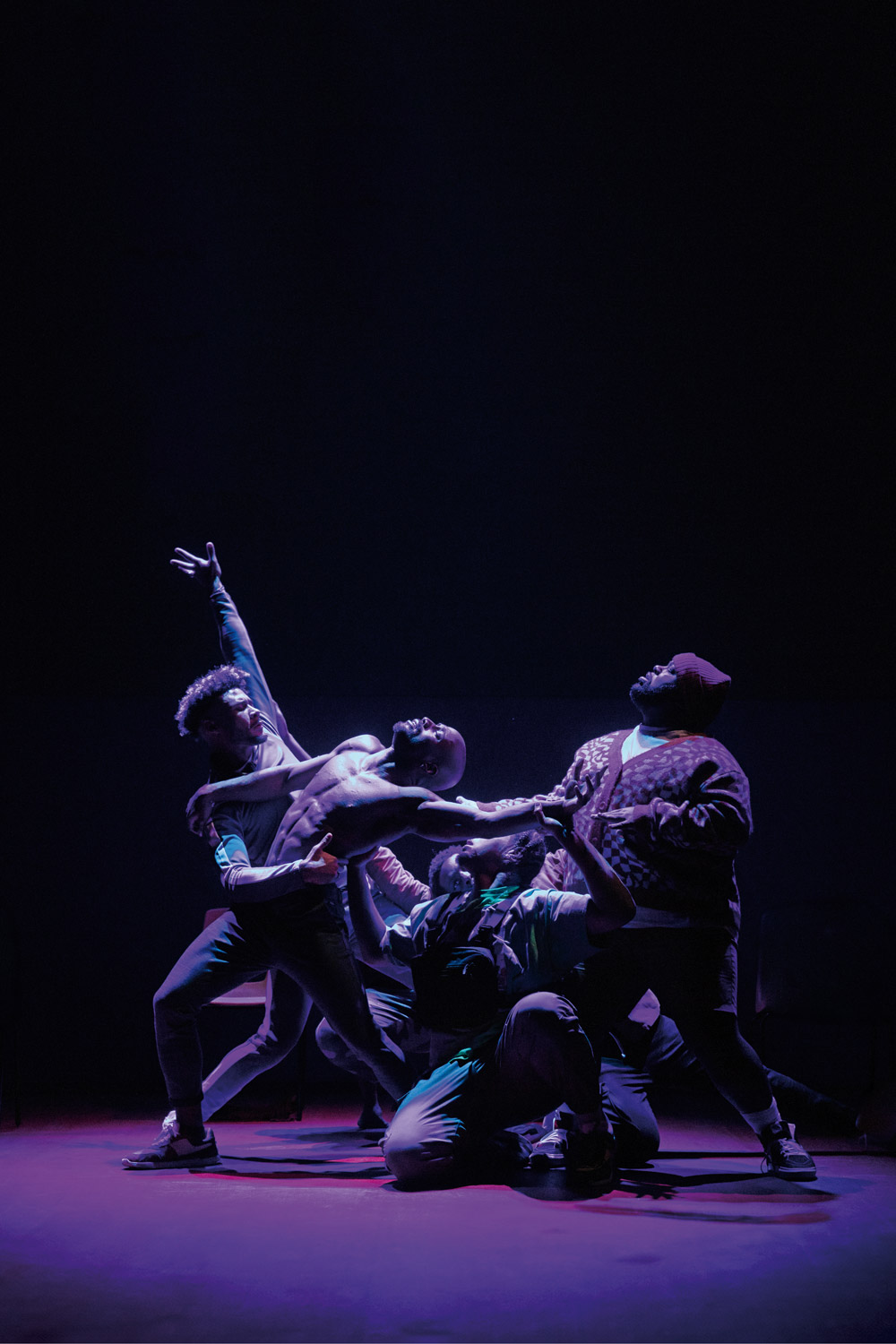
(c) Ali Wright
Championing new writing has always been what the Royal Court is in service to – and something Byrne is keen to amplify. ‘The idea that a new writer can send us a play and it might end up on a national stage is such an electric promise. Since Covid there’s been a fraying in the contract between writers and institutions, but not only do we read and consider everything, but the plays I’m looking at for my upstairs programme for next year have all come through this route.’
He has also ripped up the application process (in 2024, the Court had over 1,200 applications for only 30 spaces in its Introduction to Playwriting groups; a success rate of less than three percent). ‘Our team of readers will be looking year-round for new writers for groups who simply send us their plays,’ Byrne writes in an open letter to playwrights, with around 100 writers a year taking part. ‘There’s always a huge frisson in the building when we find something really exciting.’ This autumn, the programming includes Porn Play by playwright Sophia Chetin-Leuner – her Court debut – starring Ambika Mod and directed by Josie Rourke (former artistic director of the Donmar), and a new play by Nick Payne (writer of hit show Constellations) starring Nicola Walker and directed by Marianne Elliott.
For Byrne, success is measured in providing a huge vista of fresh contemporary theatre – ‘lots of different flavours and gestures’ – for a variety of audiences. ‘A lot of theatres have to lean into quite a small identity in order to build a regular audience and to have a sense of who they are.’ At the Court, he hopes to do the opposite. ‘The aim is not to build one audience who come and see everything. We want to have the muscle and energy to ask, “Who is this play talking to? Who is the right set of people who need to come and see this work?” And then we have to go out and find them.
What Does The Future Hold For Theatre?
That is surely a harder proposition post pandemic and in the midst of a cost of living crisis. ‘To feel part of something and to engage in those cultural moments is still part of London’s DNA. It’s our job to work out what those really magnetic moments are.’ Certainly a big name actor helps shift tickets, but Byrne insists that is nothing new. ‘The Court has always been somewhere the world’s most amazing creatives have wanted to come together and work on the first production of something totally fresh – from Peggy Ashcroft, Laurence Olivier and David Hockney right through to John Lithgow.’
As the Court celebrates its 70th anniversary next year – with a special programme still under wraps – Byrne hopes it will continue to thrive. ‘The appetite for theatre isn’t diminishing, and if we keep going to shows theatre will survive. But we’ve got to make sure that during the difficult moments, we’re putting our money where our mouth is and turning up and doing what we can.’
The Royal Court is a key venue for the Chelsea Arts Festival. Visit chelseaartsfestival.com for the full programme.


